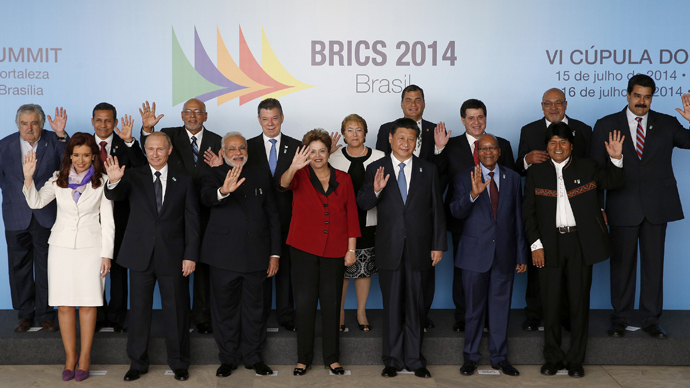BRICS: A new way of global partnership

BRICS is a product of the dynamic development of globalization and new centers of economic growth and political influence, aligning the interests of Brazil, Russia, India, China and South Africa.
The aim of this economic organization is to consolidate members’
positions in building a fairer and more balanced international
order that reflects a polycentric nature of today’s international
political, economic and cultural affairs.
Critics of BRICS prefer to underline the differences of the five
member countries in economic, historical, cultural and
civilizational terms that allegedly prevent them from building a
sustainable 21st century binding alliance. I would like to
disappoint them by saying that it is exactly the flexible and
democratic nature of BRICS that provides a firm platform for
cooperation between our countries. These are the differences that
give BRICS credibility and help transform the organization into a
fully-fledged mechanism for strategic cooperation of equals on
key issues of world affairs.
READ MORE: China ratifies the creation of BRICS bank
The level of cooperation demonstrated in BRICS is a good example
of how multilateral partnership should be built in the 21st
century. No one dominates in our association; we work on the
basis of genuine equality and mutual respect. Our cooperation is
not directed against third countries. On the contrary, we share a
very positive agenda that aims primarily at creating additional
sources for the development and wellbeing of our peoples, which
is inextricably linked to the objectives of maintaining
international stability. This forum does not seek to change the
global context, or preserve, for that matter, the unsustainable
status quo. It is plainly part of this context.
Since April 2015, Russia has taken on the presidency in BRICS.
There will be held an annual Summit in Ufa (July 8-9) and an
informal meeting of the BRICS leaders on the margins of the G20
Summit in Antalya (November 15-16). Russia's chairmanship focuses
on the most effective use of the organization’s potential to
strengthen global security and stability. BRICS has consistently
advocated the promotion of the principles of international law
and the UN primary role in world affairs. This is particularly
important in the current difficult international environment
challenged by an increased global competition and a dangerous
widening of disorder and chaos.
READ MORE: GDP of BRICS could surpass G7 in 2-3 years - senior Duma MP
At the same time, the strengthening of economic integration is
also a BRICS priority. In 2014, the BRICS countries decided to
establish a new development bank and currency reserve system.
These mechanisms are focused on stabilizing domestic capital
markets in the event of crisis in the global economy and
expanding opportunities for trade and investment between the
BRICS countries. This strategy is very much in line with the
lessons learnt from the global crisis and the crisis in the
Eurozone. We hope this could serve as a major contribution to the
modernization and democratization of the current international
financial system.
In this context, it is difficult to overestimate the importance
of solidarity of BRICS voices calling for major cooperation on
the peaceful settlement of conflicts based on the UN Charter. The
world is at a turning point. A strategic choice between
collective efforts and unilateralism has to be made. BRICS
experience shows that cooperation on the basis of mutual respect
for rights and interests of all countries, with no residual
geopolitical considerations at the back of one’s mind, is the
only answer to this dilemma.
The statements, views and opinions expressed in this column are solely those of the author and do not necessarily represent those of RT.
The statements, views and opinions expressed in this column are solely those of the author and do not necessarily represent those of RT.













